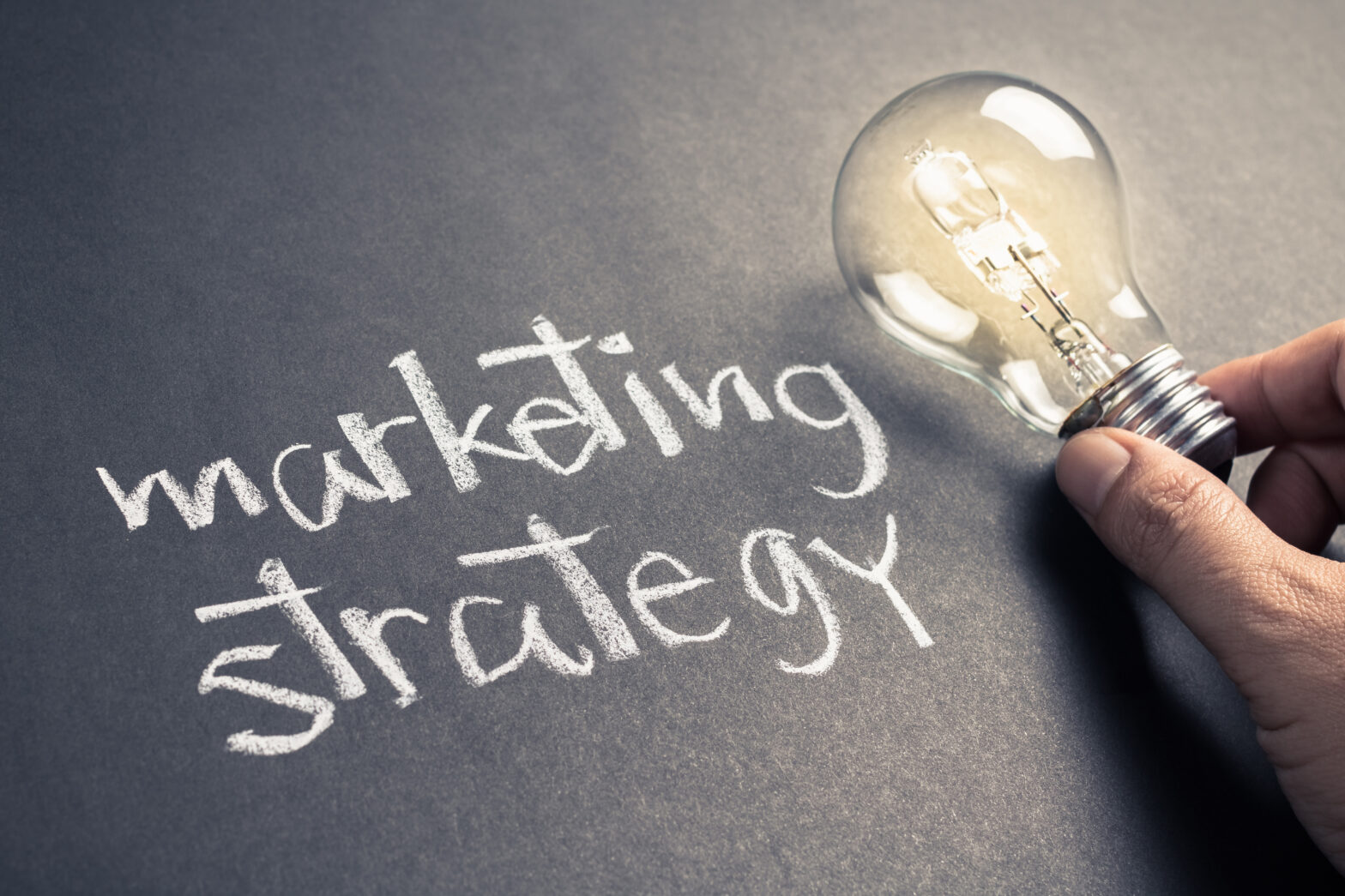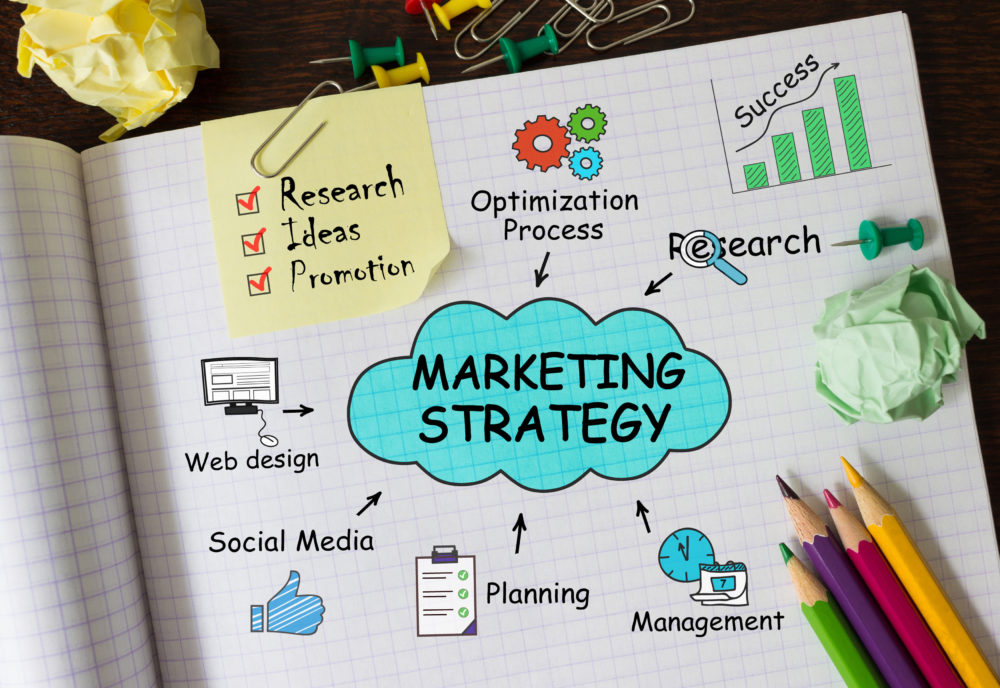With both small and big businesses having access to basically all the same promotion channels, today’s marketing is more competitive than ever before.
The battleground for customer’s attention is online and every business has access to many different weapons it can use to engage its target audience. However, not all of the digital weapons have the same effectiveness, nor all of them are a good option for smaller businesses.
Let’s check out those that are, their pros and cons, and requirements you need to match if you want to run them successfully.
>See also: Small business marketing 101, all the latest tips in 2020
3 marketing strategies for your small business
Some businesses focus their strategy on a single channel. While putting all of your eggs in one basket can work, it’s a fairly risky approach. Having an eye on (and hopefully testing) multiple strategies is much safer.
Here are 3 tried and tested marketing strategies for your small business you can use to grow:
#1 – Running paid advertising on social media
A great incentive to run social media ads is the sheer number of people that you can reach with your ads. Instagram has around 500 million daily active users and around 1.6bn people log onto their Facebook account every day. We do not even have to mention the number of people using Youtube and Google. That’s a lot of eyeballs that your brand could be getting in front of.
The great thing about big social media platforms is that they have a very robust targeting system. You can target ages, demographics, gender, interests, job positions, groups they are a part of, what they liked, which pages on your website they visited, and much more.
Example of targeting options on Facebook
This means that if you have enough info about your target audience, you can easily reach your ideal customer.
►Pros of using pay-per-click:
- It gets you immediate results
- Easy to measure (easy to calculate ROI)
- Very easy to scale a campaign when you get it to work
►Cons of using pay-per-click:
- Requires upfront investment (to find the ads that convert best and to set up your targeting parameters)
- Stops generating leads as soon as you stop running the ads
- Can be expensive, especially in B2B where the sales funnels are long (and usually in very competitive niches)
What are the requirements for running a pay-per-click campaign?
- You have enough cash to spend on the initial testing phase
- Well thought-out and compelling landing page(s) to send people too
- A very good idea of who your ideal customer is and where they are (which channels are they using)
- You know how to set up and manage adds on the desired platforms
>See also: Should I reduce my marketing budget due to coronavirus?
#2 – Focusing strictly on SEO
Think of how you search for something online – Google is the first place you visit, and, more often than not, you find what you’re looking for in the first few search results.
Sites on top of search results are not there by accident, it takes consistent work to get there.
Businesses that focus strictly on SEO do it in 3 steps:
- Do in-depth keyword research
- Optimise their money pages (homepage, features pages, competitor comparison posts, landing pages, possibly a few promotional posts on their blog) for identified keywords
- Use a variety of link building strategies to increase the ranking of select pages
►Pros of focusing on SEO:
- It increases your website visibility for promotional keywords which helps you generate quality leads
- When you know what you’re doing, you can do a lot of the optimisations by yourself (cuts down on your expenses)
- When you reach tops positions in search results, you can stay there for a while even after you stop actively building links towards it (for how long depends on how competitive the keyword is)
►Cons of focusing on SEO:
- Takes time to start ranking for competitive terms
- Almost impossible to compete with big brands for certain keywords
- Harder to scale than PPC
Requirements for running SEO strategy:
Knowledge of SEO best practices (how to perform on-page and off-page SEO)
- Quality keyword research
- Smart selections of keywords to focus on
- Access to keyword research/SEO tools like Ahrefs or SEMrush
- Access to email outreach tools like Pitchbox or Buzzstream
#3 – Growing your business with content marketing
Content marketing encompasses a lot of different things. A powerful content marketing strategy can include all of the other strategies we’ve discussed above.
As its name suggests, the foundation of this strategy is content. Because of that, it is crucial that your content offers useful information to your target audience. If you fail here, you fail at content marketing.
The idea behind content marketing is not that complicated. Publish content your audience will like and drive traffic to that content (through SEO, promotion, PPC, influencer outreach, etc.). Then, use strong lead magnets to build your email list and send visitors who are reading your content to your “money pages” (feature pages, pricing pages, trial pages…).
Alternatively, you can use pay-per-click to retarget people who visited your blog and try to nurture leads that way.
►Pros of using content marketing:
- Cheapest long-term strategy for most businesses
- Brings in leads long after you stop working on your content
- Builds brand awareness, authority, and trust – all at the same time
- Content you publish on the blog can be used in many different ways (to nurture leads, to keep your social channels active, in promotional materials, to remove objections to the sale, become a thought leader in the industry, etc.)
- Most flexible approach that gives you the option to test many different approaches and channels
►Cons of using content marketing:
- Takes some time to perform the necessary research and set everything up
- Expect three to six months of consistent work before you see some results (based on the resources you can allocate for it and how competitive your space is)
- A lot of moving parts that need quality control (research, off-page SEO, content creation, content optimization, content promotion, lead nurturing)
- Offers a lot of options so businesses that run it for the first time might have trouble creating a focused strategy (they might be casting the net too wide)
- Harder to scale than PPC
Requirements for a successful content marketing strategy:
Wide knowledge of different marketing methods, channels, and strategies
- Proper research (keyword research, target audience research, competition analysis, existing content audit)
- Access to keyword research/SEO tools like Ahrefs or SEMrush
- Access to email outreach tools like Pitchbox or Buzzstream
- Good writers with experience in your niche (if you are outsourcing content production)
- Resources to put in consistent content creation and promotion
- Knowing how to convert website visitors into leads, and how to nurture those leads so they eventually become customers
- Time allocated to build a proper content strategy and editorial calendar (you can actually stick to)
Small business marketing strategies
All marketing strategies have their advantages and disadvantages. We hope this short guide helps you choose the right strategy for you. If you have zero experience with marketing, consider outsourcing it to a digital agency and just focus on your core business.
If you plan to do it yourself, be ready for a lot of trial and error and don’t give up if the first two things you try do not show a huge ROI. Even experienced agencies don’t get everything right on their first try.
Dario Supan is a content strategist and editor at marketing agency Point Visible





